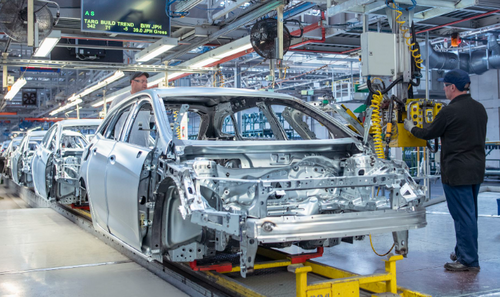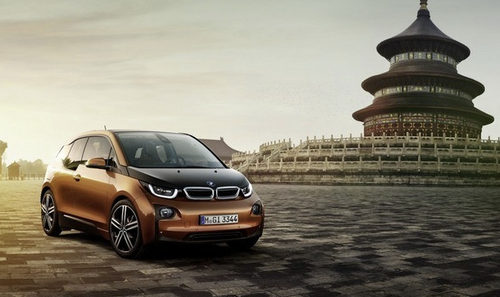U.S. Automakers Forced To Hike Prices Due To Rising Raw Material Costs
It looks like price hikes as a result of rising costs in the auto industry are starting to become widespread.
Companies like Tesla, Cadillac and Rivian are now amongst the automakers who are raising prices due to "changing market conditions and rising commodity costs", according to CNBC.
While many EV makers have benefitted from battery costs declining over the last few years, it is now being projected that a sharp increase in demand for battery minerals, coupled with global supply chain shortages, could wind up pushing up costs more than 20%.
Tesla has had to raise prices "several times over the last year", including two hikes in March, as a result of "significant recent inflation pressure" related to raw materials and transportation costs.
Rivian worked to offset rising costs on its R1T pickup and R1S SUV by introducing two lower cost versions of both models. Prices were raised by 18% and 21% on the two models, respectively.

Rivian even tried to retroactively apply the price hikes to orders placed before it made the announcement, but received massive pushback from its customers and was forced to apologize.
CEO RJ Scaringe issued a mea culpa that stated: “In speaking with many of you over the last two days, I fully realize and acknowledge how upset many of you felt. Since originally setting our pricing structure, and most especially in recent months, a lot has changed. Everything from semiconductors to sheet metal to seats has become more expensive.”
EV company Lucid is also hiking prices on its luxury sedans by about 10% to 12% for U.S. customers.
“The world has changed dramatically from the time we first announced Lucid Air back in September 2020,” the company's CEO said.
GM is also instituting price hikes on some models. Cadillac's Lyriq crossover EV saw a $3,000 price hike to $62,990.
Cadillac President Rory Harvey said: “I don’t think it was one thing in isolation. I think it was a number of factors taken into account.”
Ford, which is keeping its price on its new F-150 Lightning at $39,974, said it now expects $4 billion in raw material headwinds when it had previously just expected $1.5 billion to $2 billion.
“We’re going to still keep it for everybody, but we’ll have to react on commodities, I’m sure,” Ford's VP of Global EV Programs said.
Recall, last month, we published an article on how China was seeking to control the global EV supply chain. That came weeks after we wrote about how Chinese EV manufacturers were grappling with rising raw material costs.
We noted that many EV manufacturers were doing the only thing they could to help alleviate the pressure - and that meant rising prices. This may be why the idea of extending the subsidy has caught back on in recent weeks.
We noted in April that the pricing problems China faced were more unique to the country, because it was also trying to engineer a "soft landing" from EV subsidies, which Beijing had planned to roll back.
"What makes China unique is its commitment to simultaneously rolling back EV subsidies, setting up a delicate balance between growth and profit in the world’s biggest market for clean cars," Bloomberg wrote back in April.
Companies like Tesla, BYD, Xpeng and Li Auto all hiked prices in March, we noted. Among the manufacturers raising prices was also Contemporary Amperex Technology, the world’s biggest EV battery maker. They said they were making “dynamic adjustments to the prices of some of our battery products”.
Remember, we wrote days prior that Japanese automakers were also grappling with the skyrocketing cost of raw materials and a shortage of semiconductors.
https://ift.tt/Spds1Pa
from ZeroHedge News https://ift.tt/Spds1Pa
via IFTTT


0 comments
Post a Comment